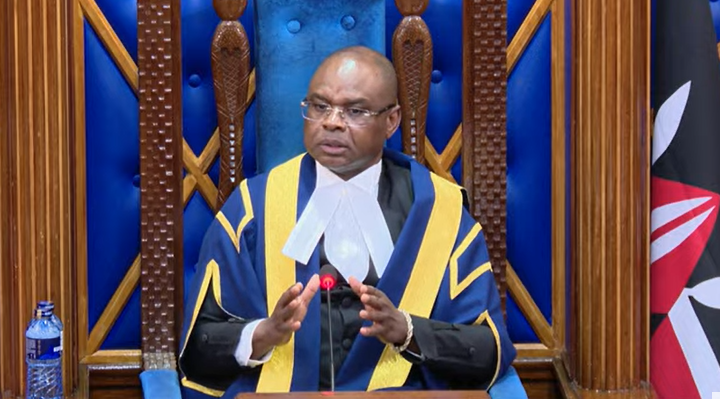.jpg&w=3840&q=100)

Senate Speaker Amason Kingi is expected to deliver a ruling on whether the impeachment trial of Kericho Governor Erick Mutai will proceed after his defence team raised objections on the voting procedure.
Mutai’s defence team led by Katwa Kigen is challenging the integrity of the impeachment process initiated by the County Assembly arguing that no valid vote took place in the County Assembly.
In his submission, Kigen contended that the impeachment motion failed to meet the mandatory two-thirds majority required under Section 33(2) of the County Governments Act, 2012.
According to him, while the Assembly reported 33 voted in favor of the motion, only 29 Members of the County Assembly could have lawfully supported it, as 18 members abstained or were opposed.
He asserted that the required minimum of 32 affirmative votes was not attained, rendering the motion invalid.
“...18 members did not vote whatsoever on 15th August 2025 as they were in opposition of the motion. The maximum voting MCAs would have be 29 MCAs. The required statutory threshold is 32 members of the County Assembly to support the motion was therefore not achieved,” he argued.
Another allegation by the governor was on the voting process itself.
Mutai claimed that the Assembly used an online voting platform hosted on its public website that lacked any credible security measures.
MCAs reportedly received login credentials, consisting of their national ID numbers and payroll numbers, via SMS, with no opportunity to create secure passwords or verify their identities through one-time codes.
This, he said, opened the door for impersonation, vote manipulation, and a total breakdown of vote confidentiality.
“The voting process was so deficient and was manipulated, hence the Senate cannot act on it.The Senate should not accept to consider and decide on the motion,” he stated.
Lawyer Elisha Ongoya for the Assembly, however, defended the electronic voting system used stating it was a legitimate and compliant method of voting.
He argued that the log entries showing multiple votes are not evidence of double voting but a result of duplications that occurred during printing of the logs.
“Mr Wanyama said that he personally logged into this system and voted...That qualifies him to be a witness who needs them to demonstrate to this House how he logged into this system and how he voted, and therefore be a proper subject of cross-examination. Anything short of that, Mr Speaker, distinguished Senators, is nothing more than mere sensationalism, and I beseech you to treat it as such,” said Ongoya.
In one instance, the governor alleges that the motion’s sponsor, Kiprotich Rogony, fraudulently voted on behalf of another MCA, raising serious concerns about the credibility of the results.
He also stated that some MCAs did not have smartphones, internet access, or even their mobile handsets at the time of voting, yet were still counted among those who allegedly supported the motion.
But, Ongoya submitted that the Kericho County Assembly members are technologically empowered to participate in online voting.
He said in 2024, the Assembly bought laptops for the MCAs in September 2024 for use in their work.
Standing Orders of the Kericho County Assembly, particularly Order No. 77, he added, were allegedly violated in the process, as the rules require electronic voting to be conducted using secure, in-chamber systems, not through unsecured online platforms.
Mutai through his lawyer Katwa Kigen, further submitted that no electronic voting infrastructure was installed in the Assembly chambers, and the platform used was pulled down immediately after the vote, raising further suspicion.
He also pointed to discrepancies between the official Hansard transcript and audio recordings of the session, claiming that records of objections raised during the proceedings were omitted or deleted.
According to the county boss, this points to procedural failures, coupled with the legal breaches and technical flaws, rendering the impeachment process null and void.
Mutai, who was impeached by the Assembly August 15, pleaded not guilty to all the three charges of gross violation of the constitution, abuse of office, and misconduct.












